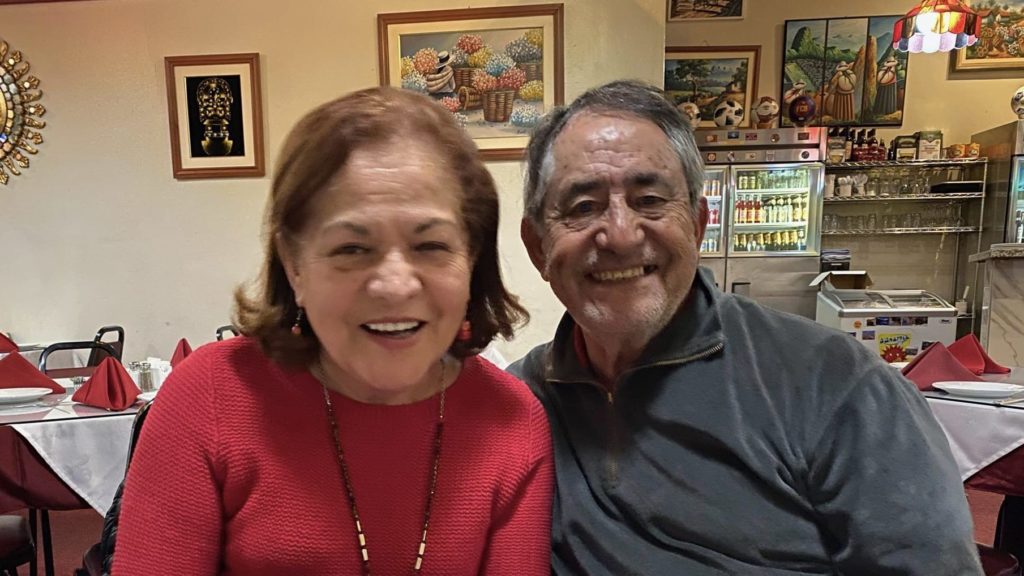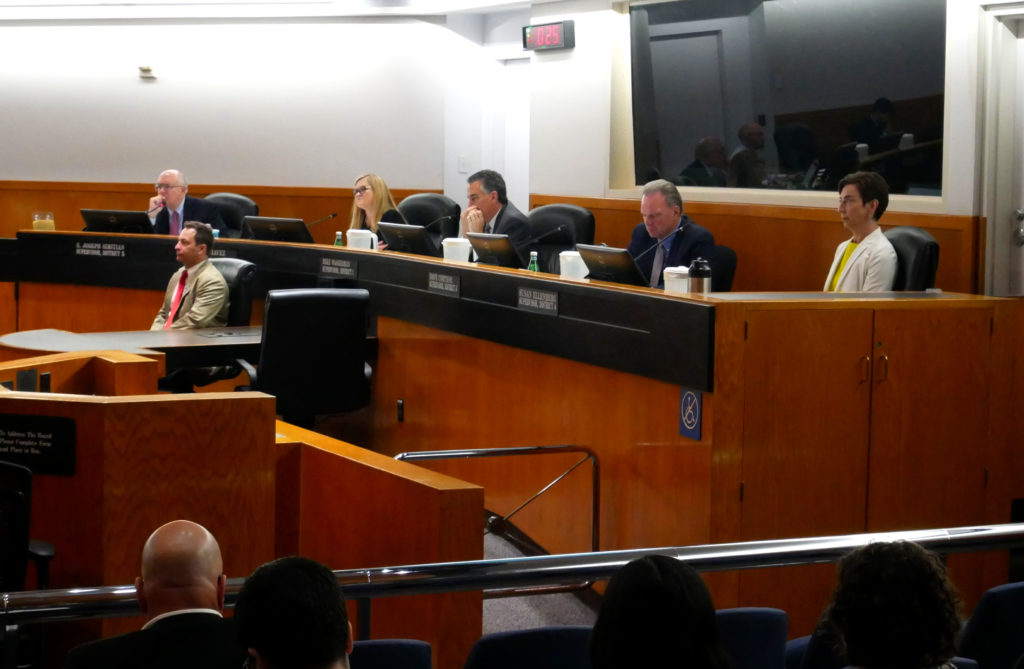Rosa and Marcial Cardenas are both over the age of 65, on Medicare and have underlying health issues that increase their risk of getting sick from the highly-contagious coronavirus that’s torn through Silicon Valley, killing 16 people, infecting 459 others and shuttering the local economy.
So when Rosa, a longtime diabetic, developed flu-like symptoms two weeks ago, her kids were understandably alarmed. Five days later, her husband, who is a kidney transplant recipient, began coughing — and the couple’s symptoms were getting progressively worse.
Their kids urged them to get tested for the deadly virus.
But both Rosa and Marcial were denied a coronavirus test. To date, the San Jose couple never received one.
“Providing for the health and well-being of its citizens is the least our government can do and that they can’t do that right now is ridiculous,” their son, Jeffrey Cardenas, said.
Rosa told San José Spotlight that the doctor at the clinic immediately explained that there were not enough tests for people with mild symptoms.
“The bottom line reason is that there are a limited number of testing kits and they were clear about that,” Rosa said. “And they were saving them for people with bad symptoms or at the highest risk, and for doctors and nurses who are treating patients who already tested positive.”

Rosa was eventually given a flu test. But when that came back negative, the doctors concluded she was “a little sick with a cold or allergies” and sent her home with a recommendation that she take Tylenol to bring down her fever.
Marcial says he was flatly refused a COVID-19 test, instead his doctor offered to prescribe a nasal spray for allergies. Both Rosa and Marcial have recovered after their recent illnesses, but their son Jeff says it is absurd that CDC regulations prevented them from getting tests.
Their story is not unique and it highlights how — even in wealthy Silicon Valley — there’s a divide and lack of equity and access to critical health care services. And it raises questions about why the couple was denied coronavirus testing and how Santa Clara County, which has become the epicenter for the infectious disease, is helping the people who need it the most.
Searching for answers
Staring into their webcams, Santa Clara County supervisors Dave Cortese and Susan Ellenberg didn’t hold back questions about the county’s procedures for coronavirus testing during a virtual Board of Supervisors meeting this week.
Both supervisors noted the county’s public health system had tested fewer than 650 patients as of March 22 — but including tests at private labs, the county reported 375 confirmed cases and 13 deaths at the time of the virtual meeting. Now the case count is up to 542 with 19 reported deaths.

But the county still doesn’t know the total number of tests being performed by commercial health labs, such as Stanford Health Care and Kaiser Permanente. Private labs are only required to report the number of positive cases, making it difficult to know how prevalent the disease is, and to predict how many cases the county can expect going forward, though that is now changing under a new order issued by the state.
“I’m concerned about how much we actually know at this point in time,” Cortese said. “Will we ever really know how widespread this is? At this point, can we catch up from a testing standpoint?”
Cortese and Ellenberg pointed out that New York Gov. Andrew Cuomo has contracted with private labs in his state in an effort to increase daily testing to 5,000, especially in New York City — which is substantially more than Santa Clara’s public health lab. It currently has a maximum capacity of 100 tests per day.
They want Santa Clara County to do the same thing to increase capacity and speed up testing — and offer it to more people, like Rosa and Marcial.
“The most frequent question that I’ve gotten from dozens and dozens of constituent emails and phone calls in just the last 48 hours, is why are we not testing as broadly as New York?” Ellenberg said. “So if we can get a direct answer to that question and publicize it, I think that is a very important piece of information to know.”
Public Health Officer Dr. Sara Cody said she didn’t know why the county was testing fewer people than New York, but said the county would know more about the number of tests conducted at private labs in the coming days.
“As far as why New York City is able to test thousands of patients a day and we’re not seeing thousands in our county, I don’t have an answer for you at this moment,” Cody said. “But we will explore to try to better understand that.”
Supervisor Mike Wasserman said it’s unfair to compare New York to the South Bay.
“New York is five times the size of us, New York has ten times the budget of us,” Wasserman said.
Who can get tested?
Public labs such as Santa Clara County’s solely receive tests from the CDC and they’re instructed to administer them only to patients who show severe symptoms and those who were exposed to the virus — such as doctors and nurses who treat sick patients. Private labs are not under the same restrictions, public officials said.
“As far as surveillance testing, which is testing lots of people — not necessarily just sick people, but people who are concerned or anybody who wants a test — that kind of testing is not what the CDC is allowing for public health labs,” said County Executive Jeff Smith.
But some private health care companies, including Kaiser, appear to be following the CDC restrictions as well.
“At this time, testing isn’t recommended for people with mild or moderate symptoms, or if they aren’t showing symptoms,” said an email the insurance company sent to its members Wednesday morning.
Using conservative estimates, Smith said there “has to be at least 5,000 individuals infected right now” in the county that are not identified. The county’s top administrator delivered even more sobering news — the number of infections countywide could rise to 10,000 or more.
Many of those people will not get sick from the virus, he added, but can still spread it to others while they are infected. “When you compare Santa Clara County to the rest of California, we are definitely a hotspot,” Smith continued.
But those are only estimates based on how many people have tested positive without knowing how many tests were given from the private labs.
How to improve testing?
In response to an overwhelming public outcry, Cody and six other Bay Area health officers issued orders Tuesday morning for private labs — both academic and commercial — to report their testing results to the state — positive and negative — so the county can provide more “meaningful and useful” testing information to the public.
“We don’t have as much information as we’d like to have, but we are pushing to get it,” Smith told the supervisors. “And the public health order that Dr. Cody just put out today will compel all of the private laboratories who are doing tests to give us information about not only the positive results — which they are required to do by law — but also any of their negative patients so that we can come up with a more rational denominator.”
Even after private labs start complying with the new order, Cody said public health officials need to evaluate and understand that information before releasing it publicly.
“It may take a little bit of time to understand the data coming in and to summarize it and interpret it and put it out in a way that is meaningful and useful to the public,” Cody said.
Santa Clara County health officials aren’t revealing testing activity and the number of positive cases by city.
Where can you get tested?
Prioritization for testing of patients by health care providers and laboratories is determined by CDC guidelines, which includes hospitalized patients showing symptoms associated with COVID-19. Santa Clara County health officials said while tests are administered in the county, labs that do testing are spread throughout the region, state and country. Here are locations in Santa Clara County that are known to be doing public and private testing:
– Santa Clara County Public Health Laboratory, 2220 Moorpark Ave., 2nd floor, San Jose, 408-885-4272
– Stanford Health Care Clinical Virology Laboratory, 3375 Hillview Ave., Palo Alto, 650-498-5575
– Kaiser Permanente, varies by location
– Cepheid, 904 Caribbean Dr., Sunnyvale, 408-541-4191
– Alphabet-owned Verily has launched Project Baseline, which screens people through an online questionnaire, and can connect residents in Santa Clara and San Mateo counties to test sites if they meet national and state guidelines for high-risk populations. Verily is also conducting invitation-only, drive-thru testing at the Santa Clara County Fairgrounds.
When will I know?
While the county public health lab typically has results within 24 hours of receiving a sample, other labs vary when they receive results. Quest has said its results are usually returned in four to five days. Stanford’s test delivers results in as fast as 36 hours. Cepheid, on the other hand, recently received FDA approval for a test that takes approximately 45 minutes.
Reporter Eduardo Cuevas contributed to this report.
Contact Adam F. Hutton at [email protected] or follow @adamfhutton on Twitter.



Leave a Reply
You must be logged in to post a comment.